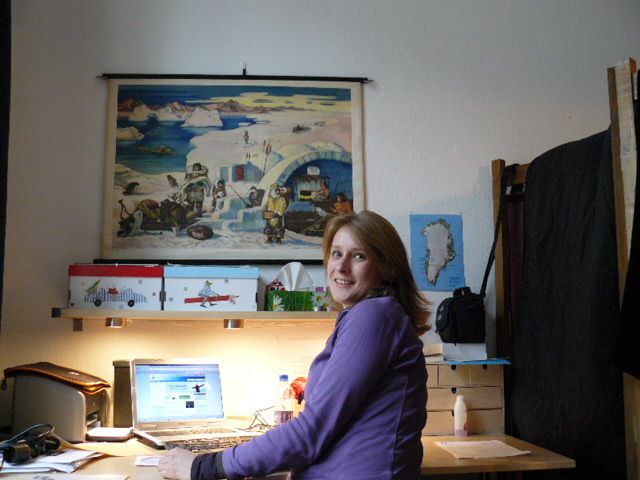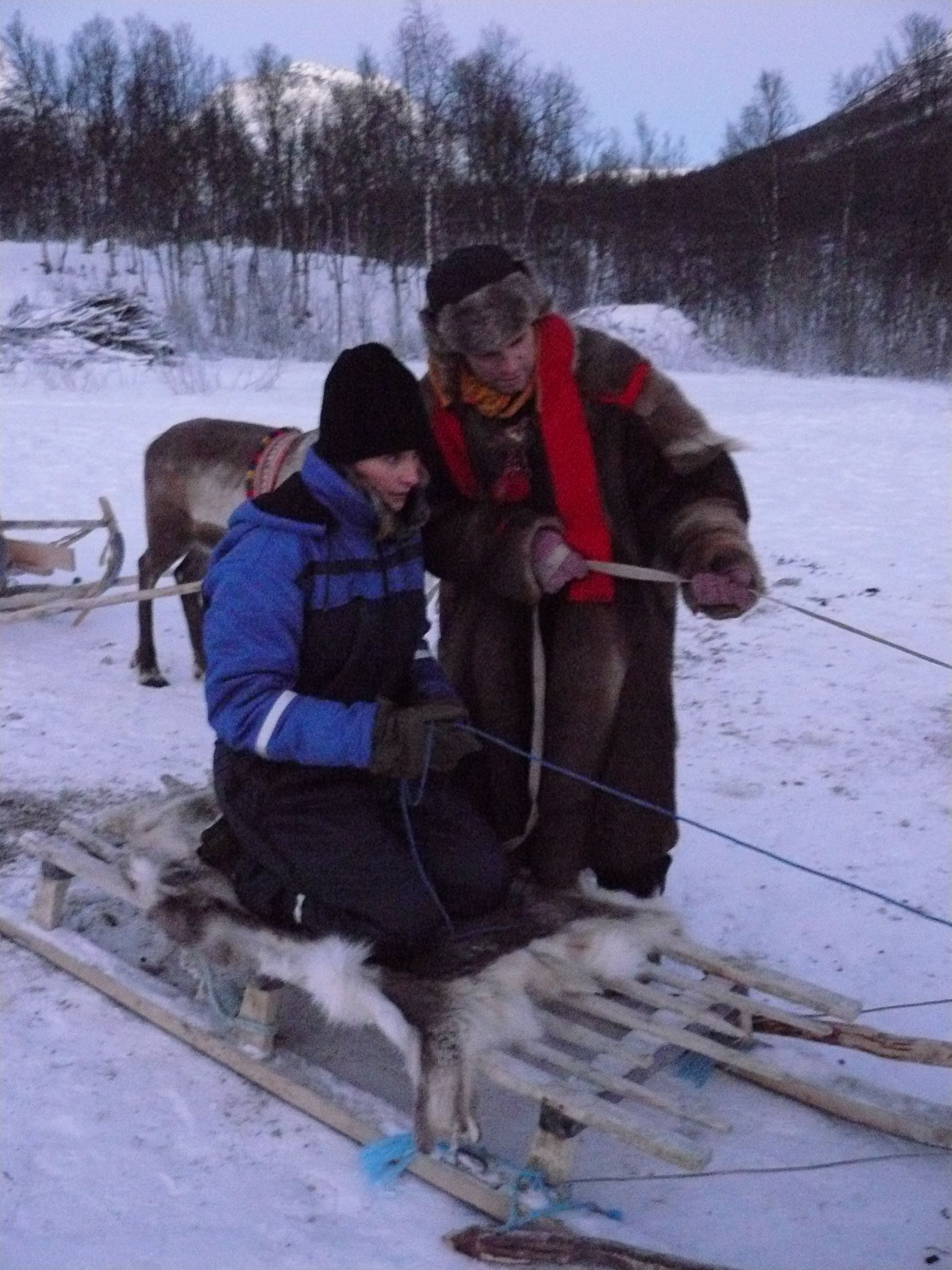Fri, Mar 13, 2009
BCS brought Dutch Student into the North
 Even as a school girl, UArctic Bachelor of Circumpolar Studies student Colette de Roo was fascinated by anything that had to do with the North.
Even as a school girl, UArctic Bachelor of Circumpolar Studies student Colette de Roo was fascinated by anything that had to do with the North. In fact, both her Dutch and her Danish origins gave her plenty of inspiration for learning about the North and she swallowed one history book after another about Vikings and whalers and Arctic expeditions.
In particular, a journal of the Dutch 16th century search for a North-East passage, which became stuck in the ice around Nova Zembla, made a deep impression on her. Having sensed the intense mixture of beauty and harshness of the Arctic, she instantly knew that her fascination was more than just a fling.
Frequent stays with her grandfather in Denmark and reflections on her Danish roots developed Colette’s Scandinavian Arctic perspective over the years as well. But still, for Colette it was somehow unimaginable to professionally dedicate her life to the North. When she graduated from high school in the Netherlands in the early 90s, it just seemed too far out to pursue a professional career in the North.

Colette decided to study civil engineering in the Netherlands and she more or less forgot about her Arctic dreams, until she spent a semester at the Technical University of Denmark and met a fellow student who had worked as a guide in Greenland during the summer. Instantly her heart beat faster and a few years after her Master’s graduation, she gained her qualification to work as a guide in Greenland.
However, as so often in life, something came in the middle of her plans to finally get a taste of the contemporary North: she got a job offer in Berlin, Germany and spent her ‘Arctic’ summer moving boxes from Amsterdam to Berlin, instead of moving tourists along the coast of the Disco Bay in Greenland. Yet, unexpectedly, her new home turned out to be the stepping stone for Colette’s Arctic ambitions.
Meanwhile, Colette had discovered the BCS programme on-line and started with her first courses in the evenings and weekends after work. Ever more determined to achieve a career switch towards Northern issues and sustainable development, Colette gave up her engineering profile and managed to move on to a job as a policy advisor on European water issues. And soon after, as if it was meant to be, Colette’s employer Ecologic Institute http://www.ecologic.eu landed a project assignment to develop policy options for supporting climate adaptation in the marine Arctic http://www.arctic-transform.org.
With the knowledge Colette had gained through the BCS programme, she could immediately contribute to the project and ended up co-authoring a background document on environmental governance in the marine Arctic http://www.arctic-transform.org/docs.html.

This spring Colette will graduate from Bodø University in Norway and she feels that, thanks to the BCS programme and the encouragement of her teachers, she has finally managed to ‘come home to the North’. She also knows it is now time to give back, after all the support she received along the way.
Colette hopes to follow UArctic’s motto and continue h
In particular, a journal of the Dutch 16th century search for a North-East passage, which became stuck in the ice around Nova Zembla, made a deep impression on her. Having sensed the intense mixture of beauty and harshness of the Arctic, she instantly knew that her fascination was more than just a fling.
Frequent stays with her grandfather in Denmark and reflections on her Danish roots developed Colette’s Scandinavian Arctic perspective over the years as well. But still, for Colette it was somehow unimaginable to professionally dedicate her life to the North. When she graduated from high school in the Netherlands in the early 90s, it just seemed too far out to pursue a professional career in the North.

Colette decided to study civil engineering in the Netherlands and she more or less forgot about her Arctic dreams, until she spent a semester at the Technical University of Denmark and met a fellow student who had worked as a guide in Greenland during the summer. Instantly her heart beat faster and a few years after her Master’s graduation, she gained her qualification to work as a guide in Greenland.
However, as so often in life, something came in the middle of her plans to finally get a taste of the contemporary North: she got a job offer in Berlin, Germany and spent her ‘Arctic’ summer moving boxes from Amsterdam to Berlin, instead of moving tourists along the coast of the Disco Bay in Greenland. Yet, unexpectedly, her new home turned out to be the stepping stone for Colette’s Arctic ambitions.
Meanwhile, Colette had discovered the BCS programme on-line and started with her first courses in the evenings and weekends after work. Ever more determined to achieve a career switch towards Northern issues and sustainable development, Colette gave up her engineering profile and managed to move on to a job as a policy advisor on European water issues. And soon after, as if it was meant to be, Colette’s employer Ecologic Institute http://www.ecologic.eu landed a project assignment to develop policy options for supporting climate adaptation in the marine Arctic http://www.arctic-transform.org.
With the knowledge Colette had gained through the BCS programme, she could immediately contribute to the project and ended up co-authoring a background document on environmental governance in the marine Arctic http://www.arctic-transform.org/docs.html.

This spring Colette will graduate from Bodø University in Norway and she feels that, thanks to the BCS programme and the encouragement of her teachers, she has finally managed to ‘come home to the North’. She also knows it is now time to give back, after all the support she received along the way.
Colette hopes to follow UArctic’s motto and continue h
